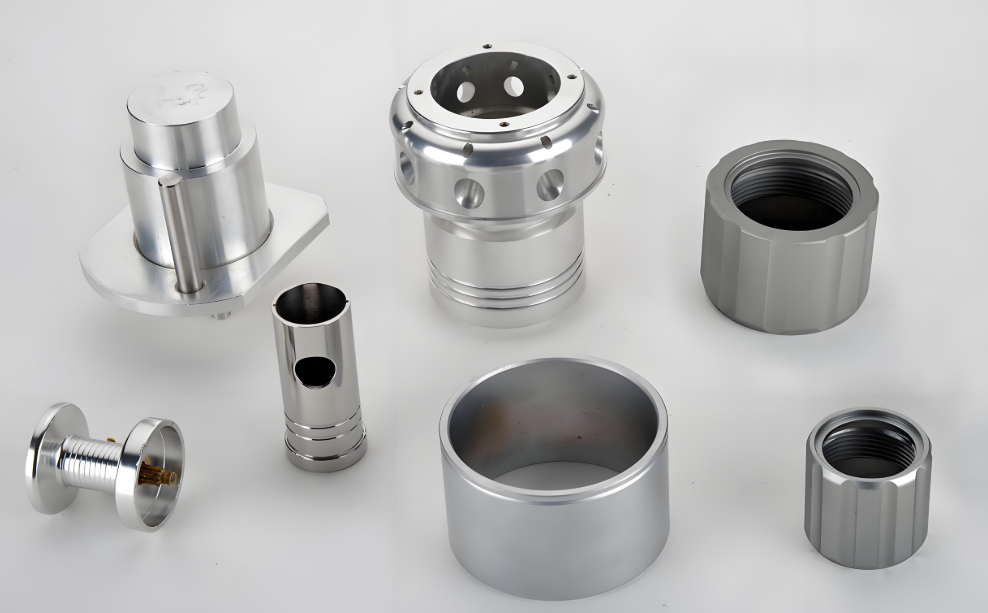
There's an unspoken dilemma in engineering circles—the tyranny of the standard component. On paper, they promise convenience: predictable availability, certified tolerances, immediate integration. But walk any factory floor from Birmingham to Bristol, and you'll hear the same frustrations whispered between design teams. At this point, the strategic value of precision custom parts becomes increasingly prominent: they are not only solutions to meet unique engineering requirements but also the core engine driving product differentiation and commercial success.
Although standard components offer immediate availability and basic functional assurance, their essence of generalized design determines many limitations: they cannot fit complex or compact spatial layouts; they cannot optimize materials and structures for specific load, temperature, or medium environments; they lack the flexibility to integrate multiple functions or innovative features; and they often sacrifice peak efficiency or service life in the pursuit of universality. These compromises accumulate and invisibly weaken the ultimate market competitiveness of products.
In contrast, custom precision parts release significant commercial value by precisely matching design intentions:
l Performance Leap and Design Freedom:
Customization gives engineers unparalleled design freedom. Through advanced processes such as CNC machining, parts can precisely realize topologically optimized structures, strengthening critical areas while thinning redundant ones, significantly reducing weight (up to 30% in some cases) while improving stiffness and strength. A valve component customized for a high-end hydraulic system, for example, has achieved a 22% reduction in pressure drop through extreme optimization of internal flow channels (far beyond the level of general-purpose components), resulting in breakthrough improvements in system response speed and energy efficiency.
l Innovation Breakthrough and Unique Functions:
Customization is the physical carrier of innovation. It allows multiple functions to be integrated into a single complex component, reducing interfaces and potential failure points, and achieving new functions that standard components cannot reach. For example, a medical device manufacturer, through precision CNC customization, seamlessly embedded sensing elements into the core moving parts, creating a smart implant with real-time monitoring capabilities, opening up a new market field.
l Full Life Cycle Cost Optimization:
The value of custom parts goes far beyond the purchase price. The performance advantages they bring directly translate into product premium capabilities. A longer service life and higher reliability (strict adherence to the ISO quality system in production is the basic guarantee) significantly reduce maintenance costs, downtime losses, and warranty expenses. A customized turbine blade, for example, made of a special nickel-based alloy and optimized in contour to resist cavitation under specific working conditions, has a service life three times that of standard components, saving power generation companies huge costs for replacement and downtime. At the same time, the precisely matched design eliminates additional machining, adapters, or assembly complexity generated to fit standard components, indirectly reducing overall manufacturing costs.
For UK senior procurement decision-makers who are responsible for enhancing supply chain resilience and product competitiveness, embracing custom precision parts is not a simple supplier replacement but a strategic choice to reshape the core value of products. It means taking the initiative to grasp design sovereignty, breaking free from the common constraints of standard components, and building irreplicable competitive advantages in terms of performance, efficiency, life, and functions. Why do top manufacturers all have their own exclusive parts libraries for core components? The answer lies here.
On the path to engineering excellence and commercial success, transcending the mindset of standard components and incorporating custom precision parts into the core supply chain strategy is the key step to unleashing the full potential of products and ensuring market leadership. Explore the infinite possibilities of precision customization and let your products define industry benchmarks www.simituo.com.